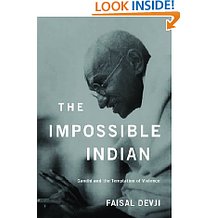It was not so long ago that Mohandas Gandhi was, at least to the academic world, a largely forgotten figure. In the 1980s and 1990s, as postcolonial thought in its various inflections became quite the rage in significant sectors of the Anglo-American (and Indian) academy, and the ‘master narratives’ of the Enlightenment, as they were called, came under sustained interrogation and assault, attention would come to be lavished upon those figures who were viewed as the torchbearers of resistance, critical of deeply embedded frameworks of interpretation that had given succour to elites, and harbingers of a politics of emancipation for those, especially, relegated to the margins. Curiously, though Gandhi is a critical figure in the histories of struggles against colonialism, racism, and the oppression of women and minorities, he remained singularly unattractive to the most prominent postcolonial theorists and intellectuals of other stripes. He was seen as a distinctly unsexy figure, dismissed as a ‘doer’ rather than ‘thinker’, scarcely worthy of the company of Aime Cesaire, C.L.R. James, or the much lionized Fanon.

Reading Gandhi and Avowing the Impossible
Vinay Lal
THE IMPOSSIBLE INDIAN: GANDHI AND THE TEMPTATION OF VIOLENCE by Faisal Devji Harvard University Press, 2013, 215 pp., price not stated
October 2013, volume 37, No 10
